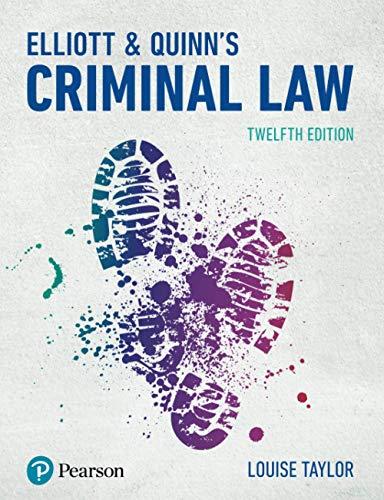Question
When a court makes a decision it becomes law in that jurisdiction. As stated in your reading, the dual US court system, Federal and State,
When a court makes a decision it becomes law in that jurisdiction. As stated in your reading, the dual US court system, Federal and State, follows the doctrine "stare decisis" (stand by your decision) wherein a court must follow the prior decisions of other courts (known as precedent) when faced with a similar issue. Every court is bound by prior decisions from the U.S. Supreme Court dealing with federal law, but other than those decisions, courts are only required to follow prior decisions from a higher court within their own jurisdiction.
First, should our court system continue following the doctrine of stare decisis or should each case stand alone and be decided without the knowledge of any prior decisions? Please discuss the positives and negatives of your response.
Second, businesses are constantly affected by judicial decisions. As such, businesses have to be aware of the current pending cases that could affect their industry. With that in mind, what type of cases do you think businesses would be most concerned about and why? In answering, be specific about the type of business you are discussing and what type of cases you think affect that business the most.
Third, "amicus briefs" are briefs written in support of a particular position in a case from an outside party that is not part of the case. This allows the outside party to have a voice in a case that they are not technically involved in. Businesses frequently submit amicus briefs. With this in mind, when do you think a business would want to submit an amicus brief?
Step by Step Solution
There are 3 Steps involved in it
Step: 1

Get Instant Access to Expert-Tailored Solutions
See step-by-step solutions with expert insights and AI powered tools for academic success
Step: 2

Step: 3

Ace Your Homework with AI
Get the answers you need in no time with our AI-driven, step-by-step assistance
Get Started


